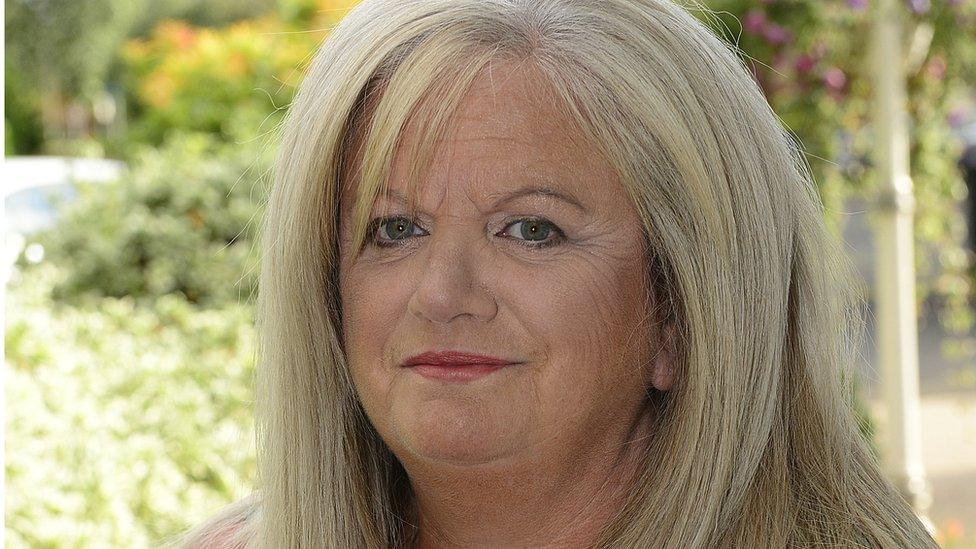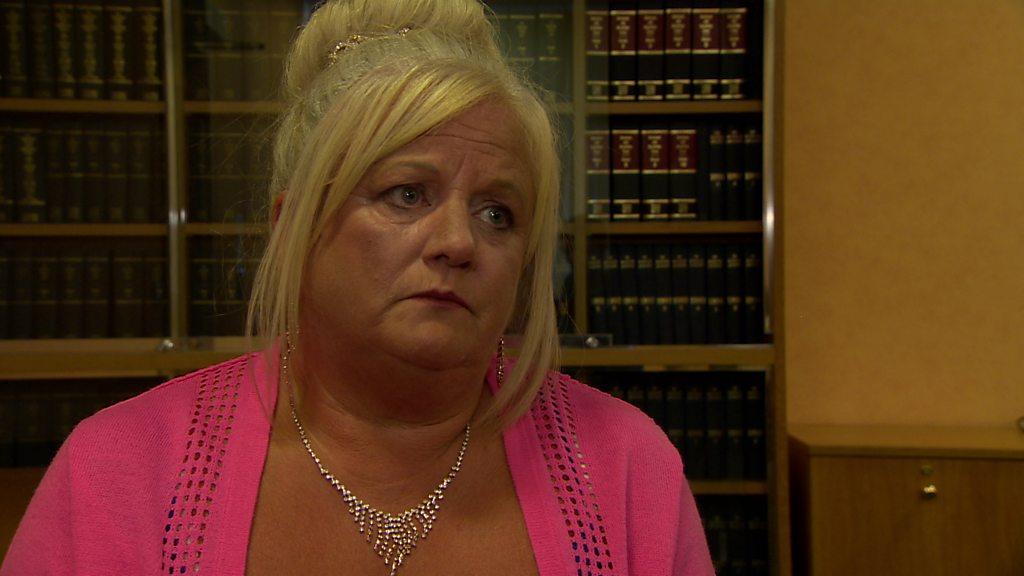Council settles sex discrimination case for £25,000
- Published
Sharon Douglas was the only female employed at the council's Limavady depot
A former council worker who was told to clean toilets because they needed a "woman's touch" has been paid £25,000 in a sex discrimination case.
Sharon Douglas was the only female employee at Causeway Coast and Glens Borough Council's depot in Limavady, County Londonderry.
She began working as a yard/storeperson in 2013 but resigned in May 2018.
Ms Douglas said that during her employment she was denied overtime and training offered to male colleagues.
The council has settled the case without admission of liability.
'A woman's touch'
On one occasion, Ms Douglas said she was instructed to go to another council site ahead of an inspector's visit "to clean the kitchen and the toilets, which was not my job".
"I was told that the toilets 'needed a woman's touch'," she added.
She said her male colleagues "were allowed to put themselves forward for overtime on Saturdays and public holidays but when I asked to be considered in the same way, I was refused".
The Limavady woman claimed she was told she could not do overtime because she had not "been trained on some of the machines", adding "when I asked for training, that was also refused".
Ms Douglas said that when she complained she was subjected to abusive language.
She made a formal grievance about her treatment and during an investigation, colleagues were asked if they would work alongside her at another amenity site.

Ms Douglas said she was deeply hurt by the way she was treated and by how her complaints were handled.
The investigation found male colleagues would not be happy due to concern over the position they felt they could be put in "if she accuses me of something up in that yard".
"The whole thing affected me badly and I was off work with stress," Ms Douglas said.
"When I raised the issue directly, and flagged up my concern that this was sex discrimination, the first response I got was rude and dismissive.
"Later, when I complained through the council's grievance procedures, I was very dissatisfied with the length of the process and the way it was handled," she added.
No amount of money
She told BBC Radio Ulster she felt like she had lost her self worth.
"I was good at my job and I loved it and always gave 110%," Ms Douglas said.
"But I always felt as if I had to prove myself more than a man. Whatever they did, I had to do more to get recognised.
"No amount of money will ever make up for the hurt."
Her case was assisted by the Equality Commission.
The commission's Dr Michael Wardlow said the request to clean toilets as they needed a "woman's touch" was a "direct and inappropriate reference to her gender".
"Employers must make sure, not only that they have such policies in place, but that all their staff are fully aware of the importance the employer places on implementing them," he added.
Training and development
A spokesperson for Causeway Coast and Glens Borough Council said following this case and meeting with the commission it "has affirmed its commitment to the principle of equality of opportunity and to ensuring that our policies, practices and procedures conform in all respects with Equality Legislation".
They added: "The council is committed to promoting equality of opportunity for all employees and further embedding these principles within the organisation, through an ongoing programme of training and development."
- Published21 August 2018
